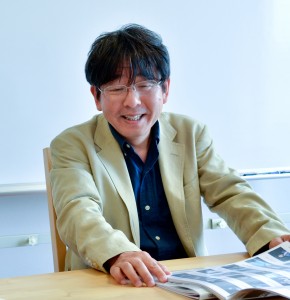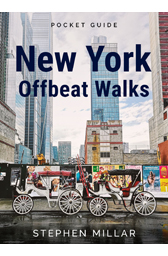1980s.
El Paso, New Mexico, USA
In the spring of the year I graduated from university, I visited the embankment of the Rio Grande River. The towns, and the river itself, often appear in Westerns. Upon crossing the river, I found myself in the Mexican city of Juárez.
On the opposite bank, I spotted many young Mexicans sitting around. “They’re waiting for their chance to enter America,” my American companion informed me. They had only to cross the river to set foot in a country of wealth and prosperity. Working in America was their dream. Being Japanese, the whole idea was difficult for me to comprehend.
From that time on, immigration to the US from Latin America (including Mexico) has led to various issues. Illegal immigrants take American jobs, and crimes do occur. On the other hand, without the cheap labor force, the US would be in a bind. There were a ton of contradictions to unpack. The one truth everyone could agree on was that Mexico was poor, and the US was rich. What was behind this wealth gap in a place with the same landscape and climate? Was it the state or the people at fault? Perhaps it was both. I just didn’t know at the time.
This state of affairs has persisted for nearly half a century.
2017.
“I’ll build a wall on the Mexican border!”
Partially on the back of this statement, Donald J. Trump became the 45th president of the United States.
The next year, the “caravan” became a hot button issue. A group of refugees from the poorest countries in Latin America—their homelands full of gang violence and corrupt politics—traveled a long way in search of better lives. That number swelled to the thousands before the group reached the US–Mexico border.
THE SWELLING RANKS OF REFUGEES ALL OVER THE WORLD.
The problems that come with illegal immigrants and refugees are spreading to EU countries. While asylum seekers escape from civil wars and dictatorships in Africa and the Middle East in order to protect themselves and their families, the tax burden and security concerns regarding refugees are sparking political instability across the nations of the EU. The UK’s departure from the EU was also triggered in part by the rise in immigration.
Why do people from the Middle East and Africa aim for Europe? One reason is the political instability in their countries of origin. Many people have been killed or injured due to civil strife. Another reason is the wealth gap, which has grown ever larger over the past century. People from poor countries tend to flow into rich countries. But how does this gap arise to begin with?
Other problems include high crime rates, drug cartels, and low-quality education in their homelands. Moreover, corruption is widespread, and the public doesn’t trust in their governments or politicians. The police and the military typically fare no better either.
Currently, the issues of immigration are spreading across the globe.
EVERYONE LOVES THEIR HOMELAND.
Many refugees try to cross the Mediterranean from Africa and the Middle East by boat, or get to the EU on foot. And many lives are lost, including women and children.
It’s a matter of course—everyone loves the homeland where they were born and raised. So why must they abandon their homelands and head toward foreign lands, risking their lives in the process? It’s not as though those foreign countries will welcome them with open arms.
“It’s in search of a better life.” “It’s to avoid the civil war in my homeland. I want to live.” “I want my family to be safe and secure.”
There may be various reasons, but the foremost is the sense that one’s life is always in danger in the homeland, and that there is no hope in sight for oneself or one’s children.
FOR A HOMELAND WHERE THE CHILDREN CAN BE SAFE AND SOUND.
Immigrants should not have to abandon the countries where they were born and raised. They want to live in their homelands, and they want their homelands to be places where their children can grow up in safety and security, to be places their children can take pride in. They aren’t escaping to other countries, so much as they’re seeking a nation that’s easier to live in. As such, reconstructing their homelands is the best solution to the immigration/refugee crisis. No one would abandon a home-nation they can take pride in, and where they can raise their children with peace of mind.
We shouldn’t be creating walls. We need to be revitalizing people’s homelands, and tearing down the walls in our hearts.
A NEW DEMOCRATIC STATE.
Companies, mercenaries, scientists and economists joining forces to create a new nation, based on advanced AI. Wiping out drug cartels and defeating a dictatorship, and then aiming for a more rational and livable democratic country by way of AI. It is the establishment of a new nation that could not be accomplished during the Arab Spring. This book depicts one example of that process coming to fruition.
MAINCHARACTERSEXCERPTTAKASHIMAAdd to CartAmazonB&NAppleKoboGoogle
Watch this video!
You will enjoy reading The Wall: The Refugees’ Path to a New Republic.
 MUSEYON BOOKS Smart City Guides for Travel, History, Art and Film Lovers
MUSEYON BOOKS Smart City Guides for Travel, History, Art and Film Lovers




